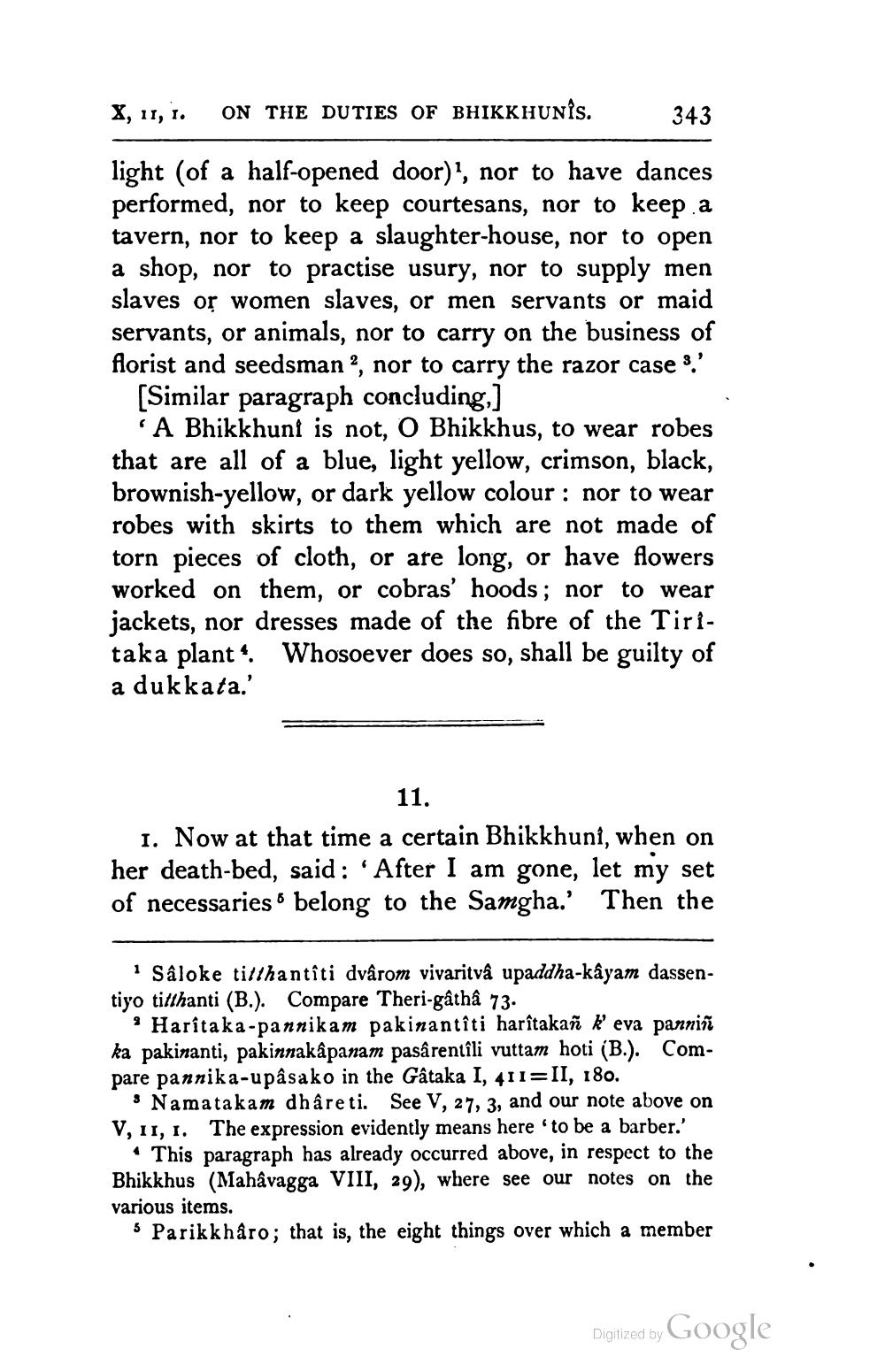________________
X, 11, 1.
ON THE DUTIES OF BHIKKHUNIS.
343
light (of a half-opened door)?, nor to have dances performed, nor to keep courtesans, nor to keep a tavern, nor to keep a slaughter-house, nor to open a shop, nor to practise usury, nor to supply men slaves of women slaves, or men servants or maid servants, or animals, nor to carry on the business of florist and seedsman”, nor to carry the razor case 3.' [Similar paragraph concluding, ]
A Bhikkhunt is not, O Bhikkhus, to wear robes that are all of a blue, light yellow, crimson, black, brownish-yellow, or dark yellow colour : nor to wear robes with skirts to them which are not made of torn pieces of cloth, or are long, or have flowers worked on them, or cobras' hoods; nor to wear jackets, nor dresses made of the fibre of the Tiritaka plant 4. Whosoever does so, shall be guilty of a dukkata.'
11. 1. Now at that time a certain Bhikkhuni, when on her death-bed, said: 'After I am gone, let my set of necessaries belong to the Samgha.' Then the
Sâloke titthantîti dvârom vivaritvå upaddha-kâyam dassentiyo titthanti (B.). Compare Theri-gâthâ 73.
Haritaka-Dannikam pakinantîti harîtakañ k eva panniñ ka pakinanti, pakinnakapanam pasârentîli vuttam hoti (B.). Compare pannika-upasako in the Gataka I, 411=II, 18o.
Namatakam dhâreti. See V, 27, 3, and our note above on V, 11, 1. The expression evidently means here to be a barber.'
This paragraph has already occurred above, in respect to the Bhikkhus (Mahavagga VIII, 29), where see our notes on the various items.
5 Parikk hâro; that is, the eight things over which a member
Digitized by
Digilzed by Google




